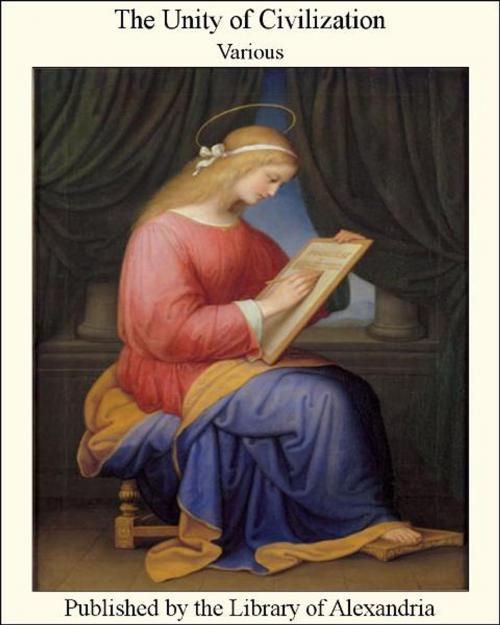The Unity of Civilization
Nonfiction, Religion & Spirituality, New Age, History, Fiction & Literature| Author: | Various Authors | ISBN: | 9781465520098 |
| Publisher: | Library of Alexandria | Publication: | March 8, 2015 |
| Imprint: | Language: | English |
| Author: | Various Authors |
| ISBN: | 9781465520098 |
| Publisher: | Library of Alexandria |
| Publication: | March 8, 2015 |
| Imprint: | |
| Language: | English |
The following essays are the substance of a course of lectures delivered at a Summer School at the Woodbrooke Settlement, near Birmingham, in August 1915. The general purpose of the course will be apparent from the essays themselves. No forced or mechanical uniformity of view was aimed at. The writers will be found, very naturally and properly, to differ in detail and in the stress they lay on different aspects of the case. But they agree in thinking that while our country's cause and the cause of our Allies is just and necessary and must be prosecuted with the utmost vigour, it is not inopportune to reflect on those common and ineradicable elements in the civilization of the West which tend to form a real commonwealth of nations and will survive even the most shattering of conflicts. That we on the Allied side stand fundamentally for this ideal is one of our most valuable assets. The fact that the lectures were delivered at a settlement for training persons for social work in a religious spirit, suggested to more than one of those who took part in the course, how similar is the task which now lies before us in international affairs to that which Canon Barnett initiated thirty years ago for the treatment of the social question at home. We need in both cases to associate ourselves mentally with Others in order to realize the common elements which underlie the seeming diversity in the civilization of the West. The method of the course was primarily historical, though certain essays have been added of a more idealist type. It is hoped that the point of view suggested, though prompted by current events, may be found to have some permanent value. It could obviously be applied to many Other aspects of European life, e.g. morality and politics, to which conditions of space have only permitted indirect reference to be made in this volume.
The following essays are the substance of a course of lectures delivered at a Summer School at the Woodbrooke Settlement, near Birmingham, in August 1915. The general purpose of the course will be apparent from the essays themselves. No forced or mechanical uniformity of view was aimed at. The writers will be found, very naturally and properly, to differ in detail and in the stress they lay on different aspects of the case. But they agree in thinking that while our country's cause and the cause of our Allies is just and necessary and must be prosecuted with the utmost vigour, it is not inopportune to reflect on those common and ineradicable elements in the civilization of the West which tend to form a real commonwealth of nations and will survive even the most shattering of conflicts. That we on the Allied side stand fundamentally for this ideal is one of our most valuable assets. The fact that the lectures were delivered at a settlement for training persons for social work in a religious spirit, suggested to more than one of those who took part in the course, how similar is the task which now lies before us in international affairs to that which Canon Barnett initiated thirty years ago for the treatment of the social question at home. We need in both cases to associate ourselves mentally with Others in order to realize the common elements which underlie the seeming diversity in the civilization of the West. The method of the course was primarily historical, though certain essays have been added of a more idealist type. It is hoped that the point of view suggested, though prompted by current events, may be found to have some permanent value. It could obviously be applied to many Other aspects of European life, e.g. morality and politics, to which conditions of space have only permitted indirect reference to be made in this volume.















